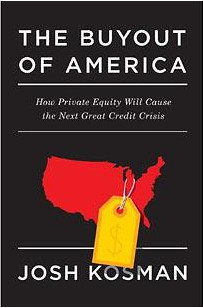 There are known knowns. These are things we know that we know. There are known unknowns. That is to say, there are things that we know we don't know. But there are also unknown unknowns. There are things we don't know we don't know. Donald Rumsfeld I laughed when the then Secretary of Defense made that statement as it sounded like a military-speak aphorism. But, it rings with profound wisdom the more I deal with career management and employment issues in this economy. How do we deal with the business and career issues we don't know we don't know? I advise my clients to do deep research on companies for interview preparation, but that never, within time parameters, uncovers sufficient information to make a well reasoned decision on an offer if one comes. Sometimes it is the luck of the draw that you land well. What do you do with networking referrals devoid of context or personal engagement? You are left in a vacuum to deal with the referral and in the dark as to how to proceed. Time is so precious. You know it if you are in a driven high-pressure position, in career transition, or an entrepreneur. There isn't enough of it, and your living comes from the finite amount of time that you can dedicate to your business. We don't have time to be sidetracked with the unknowns that we don't know. What's worse is that we don't know what we don't know until it is past tense. Often in retrospective, we can look back at an entire situation and see what we needed to know at the time. I believe that is the Monday morning quarterback syndrome personified. Unfortunately, I don't know what to advise you as I don't know what you don't know. But I do have a few mental guidelines that help me and I am happy to share them. Everyday is Groundhog Day Remember the Bill Murray movie where he relived the same day over and over again until he actually had no unknowns left to figure out. Seriously! He ended up knowing everybody in the town and everything they were going to do that day. His level of response by his final rerun day was masterful. I try to remind myself that every day is essentially the same. Within each day there will always be unknowns that are unknown. The result of that attitude is not ending up feeling blindsided as I have already factored that in. When I stay very attuned and mindful I can almost sense them coming out of left field. It is comforting at least. Belts and Braces The British, bless them, had an unspoken rule about being prepared for the unknowns in life. Back in Victorian times and the early part of the last century, men work both a belt and braces (suspenders). Over time and the era of spandex and jeans below your butt, the braces have fallen by the wayside. But belts and braces represented a way of approaching life. The message is clear, expect catastrophe and be doubly prepared: keep an umbrella in the car, hide a house key under a rock, back up your files...twice. You may never need to implement plan B but it's good to know that you can. Think about it. That's why we have a Vice President of the United States. The Morning After the Night Before Letting decisions stew a bit is a good thing. Figuratively, "sleeping" on business problems and issues allows time to have more information unfold and it diminishes the number and size of unknowns. There are certain Myers Briggs personalty types that are really in their comfort zone when they get things decided, goals set, and marching orders relayed to the troops in an expedited fashion. They rush to judgement and freak out when the other shoe drops with unforeseen catastrophes. Other personality styles prefer to put off decisions and just let things unfold. Often that is the best remedy for those blindsiding unknowns. Just let them sort of slide into view rather than dropping on you. Embrace the Unknown The greatest adventures, opportunities and joys in life are most sweet when they have not been predicted, expected, and factored in. Aren't the unknown unknowns often some of the nicest, best surprises that come upon us. We just think that any unknown will be necessarily be bad, negative and undesired. If life is like a box of chocolates then it helps to be an epicurian with a broad palette. Thus you are delighted with whatever you find in the box. The unknown unknowns will always show up in our lives. The impact they have depends on how we choose to experience them.
1 Comment
 What is worse than job interviewing in person? Interviewing with a bad webcam using a poor SKYPE connection. You end up with the goldfish bowl look because of the camera distortion. Or your eyes are always looking down at the screen at the interviewers to whom you give no eye contact. The fine art of interviewing is not improving anytime soon. It can still be a painful, dreaded, nerve-wracking experience on both sides of the desk. Everyone has a nightmare story about the "interviewer from hell", someone who was so bad at asking questions that you absolutely knew you were never going to be hired. What about the interviewer who doesn't ask questions but rather just chats as the new best friend that you never hear from again? Or, the interviewer who asks questions so unrelated to the job you wonder if you applied for the wrong position? Then there is the distainful interviewer, who acts as though it is a supreme imposition just having you in the room. I could go on and you can in the comments section to this blog. How Do You Ace It? Yes, bad interview stories are abundant. However, it still is on you to acquit yourself well during the interview. What does that mean? - Should you ace all the questions with absolutely appropriate answers? - Should you offer great, relevant examples, facts and figures with glib ease? - Should you mirror the interviewers body language to make him/her comfortable in your presence? - Should you create a dialogue to interact in easy conversation, thus putting your interviewer at ease? - Should you provide business solutions to demonstrate the compelling value in hiring you? Yes, of course, to all of the above! But, while that will certainly go a long way to getting you hired, that's not it. If you do everything above, unless you are a glow-in-the-dark java software developer, it is not enough to be hired. And, if you do just some of the above with a less than stunning acquittal of your expertise and you successfully do one more thing, odds are that you will be hired.  I have been working with top executives worldwide as well as in Silicon Valley for a number of years now. They are primarily employees of the big multinational European and American companies. Some are Americans, most are not, and many were educated in the USA at a top business school. The vast majority of them are not company "lifers" in that they haven't been with the same company for years, but have job hopped from company to company and country to country. A Silicon Valley executive called me the other day thinking he needed to make a job move. His company (a top Fortune 500 software provider) was insisting that he take a promotion and 4 year transfer with his family to China. With a Chinese wife and his two small children becoming bi-lingual, this would have been a good experience for the family. He is in finance and the role would have been at the country level running all operations. It was a plum assignment. With Asian experience, he would be able to attract the best global opportunities from other corporations after this assignments. It took much refection and research before he convinced himself to take the opportunity and see it as such.  The World Economic Forum ended on a dark worried note about the future of the worldwide workforce. The Davos gathering didn't doubt the numbers or projections. It is the means to the end that gave them consternation. According to Vikram Pandit, CEO of the global bank, Citigroup Inc., "The world needs 400 million new jobs between now and the end of the decade, not counting the 200 million needed just to get back to full employment, so "that should be our number one priority". It is not a simple scenario to just materialize 600 million jobs in 8 years. It is a real and dire problem with the nothing less than the world economy at stake. The financial leaders and heads of corporations spent time finger pointing across national boundaries, but they came away without a tangible solution how to grow worldwide GDP and therefore jobs. That there is no concerted and coordinated global response to a looming work crisis may indicate a fundamental problem with how our worldwide economic system functions with implications that impact all class and economic levels. We Aren't Entitled to Work? Is there such a thing as a right to work in a free market, capitalistic, global economic system? Are we as a population in the USA entitled to earn a living if we are sound of mind, able bodied and skilled? It was easy to ignore this issue when unemployment numbers were composed of the poor, uneducated and unskilled. However since 1980, every recession has generated unemployment creep upwards from manufacturing, to white collar, to now the executive suite. This has resulted in a substantial ongoing dislocation of the socioeconomic structure of the US population . Today the 12+ million "officially" out of work is about the size of Illinois and that fails to account for the underemployed and those not looking. At the same time, the employment agency, Manpower, reports that 75% of its revenues are now from outside the USA. In America, we know where the jobs have gone and continue to go-- elsewhere. But that begs the question as there still won't be enough work to go around worldwide with an emerging, educated, skilled, global middle class. Are we entitled to earn a working living at the expense of another somewhere in the world? Doesn't everyone deserve the opportunity to make a contribution and be paid for doing it? The essence of work is contribution. You do a day's labor and are paid a living wage. But what if there is not enough work to go around anymore? Does that mean that those that want to work and can't find it are facing life as an underclass of people who are going without the basic necessities of survival, and are deprived of being contributing members of society? Will work, especially highly skilled, intellectual work, become an entitlement or privilege? Wherever you are in the world, you got your job because of a set of advantages. Call it luck, fate, geography, position, status, connections, or price-point. The others who missed out on the opportunity didn't quite have your unique set of advantages but they were just as smart, talented, hard-working, earnest and yet unemployed.  Private Equity firms own companies that employ 1 in 10 employees in the USA making them the nation's largest employer. They own across all sectors including Harrahs, Hostess, Clear Channel, Energy Future Holding Company, AMC Movies. How did the protestant work ethic of Sweat Equity get replaced by the Blood Equity of the leveraged buy-out? No value is created, other people's money is used to buy companies and the resulting profits are gained by corporate dismemberment, divestiture, and downsizing. This is the premise a new book by Josh Kosman, a veteran financial reporter and the author of The Buyout of America, How Private Equity is Destroying Jobs and Killing the American Economy. There is no point in turning this into a debate about the function of private equity given that it is now a phenomena that is well integrated into the warp and weft of the financial landscape in America. However, it is always wise to explore the career possibilities this portends for professionals and executives. What are the opportunities? Start-ups What are the employment opportunities that present themselves? Well, for starters, private equity firms have become very involved in start-up investments. Start-ups have always been the domain of the Venture Capital firms. But they have been hard-pressed to fund new ventures in the past several years. They lost investors initially after the crash and then they have been preoccupied with keeping their current farm of companies afloat. Private equity offers an alternative funding source for budding entrepreneurs for long-term funding.  As the saying goes you either have lunch or be lunch. When Kodak filed for bankruptcy restructuring, I wept over my vintage Brownie and played the Kodachrome lyrics by Paul Simon: Kodachrome You give us those nice bright colors You give us the greens of summers Makes you think all the world's a sunny day, oh yeah! I got a Nikon camera I love to take a photograph So Mama, don't take my Kodachrome away What can executives and professionals take-away about from this? Why does a company have talented teams who create bleeding edge products see failure because executive management fails to capitalize on it? "Through the 1990s, Kodak splurged $4 billion on developing the photo technology inside most of today's cellphones and digital devices. But a reluctance to ease its heavy reliance on film allowed rivals like Canon Inc. and Sony Corp. to rush largely unhindered into the fast-emerging digital arena. The immensely lucrative analog business Kodak worried about undermining too soon was virtually erased in a decade by the filmless photography it invented." This is from an article by Ben Dobbin for Associated Press. The article went on to quote: "If you're not willing to cannibalize yourself, others will do it for you," said Mark Zupan, dean of the University of Rochester's business school. "Technology is changing ever more rapidly, the world's becoming more globalized, so to stay at the top of your game is getting increasingly harder." Read more here Like Kodak, Xerox PARC (now just PARC) invented but never capitalized on the Graphical User Interface that made the personal computer a tool for the masses but Apple did with the Macintosh. Sony and Canon capitalized on Kodak's digital camera breakthroughs. Other sector leaders have met with the same fate such as RIM and AOL. These companies were all market makers yet lost out to the competition by a failure to adapt, transform and innovate. Certain people have management styles that tend to be risk averse and impede the growth and expansion of the company with a "let's not get ahead of ourselves" attitude. They need too much proof and they take too long to make the right decision in the face of market movements. They lack a capacity to see beyond their self-imposed company rulebook, and, worst of all, they fearfully protect their next quarter profits by keeping dated products alive too long. When a sector is moving, like the global economy, at the speed of light agility and flexibility are essential skills. Keeping up is not sufficient when getting ahead is in order. The same holds true for individuals. We must continually evolve and respond to organizational, market and economic changes. Knowing when to get out and move on is insufficient if you don't do it. Executives that do not embrace the trends of today will have the marketplace pass them by because of risk averse and dated views regarding their own career advancement. |
Categories
All
Archives
May 2019
Licensed by CC-by-SA
|